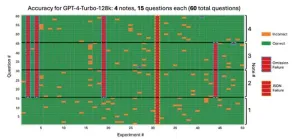“We know from decades of research that maple syrup is more than just sugar. It contains over 100 natural compounds, including polyphenols, that are known to prevent disease in part through their anti-inflammatory effects,” remarked Dr. André Marette, PhD, and lead scientist on the study. “Because the fundamental chemistry of maple syrup is unique, I wondered if ingesting maple syrup instead of an equivalent amount of refined sugar would differently impact the cardiometabolic health and the intestinal microbiota in humans. The results were extremely encouraging. I did not expect to see so many improvements of risk factors within a relatively short treatment period.”
The study was conducted by a Laval University team led by Dr. André Marette, PhD, at the Quebec Heart and Lung Institute and Dr. Marie-Claude Vohl, PhD, at the Institute of Nutrition and Functional Foods.
Study Protocol
Forty-two volunteers from the greater Québec city area, between the ages of 18-75 in good health, and with a BMI of 23-40, participated in the study. Participants substituted 5% of their daily caloric intake (corresponding to 2 tablespoons) from refined sugars with either Canadian maple syrup or an artificially flavored sucrose syrup. Each phase lasted 8 weeks with participants switching between maple syrup and sucrose syrup groups after a four-week washout period. The cross-over design ensured that the same test subject was his or her own control, consuming both placebo and maple syrup. Primary outcomes focused on the oral glucose tolerance test, the OGTT. Secondary outcomes included changes in blood lipid profile, blood pressure, body fat composition (measured by DEXA scan) and changes in gut microbiota composition.
Maple, the Smarter Sweetener, Improves Multiple Cardiometabolic Risk Factors
Blood Sugar Lowered
Study participants who consumed pure maple syrup had an improved response to the oral glucose tolerance test (OGTT) than those who received a flavored syrup of refined sugar. Their bodies managed blood sugar levels better after eating (-50.59 vs. +29.93).
Blood Pressure Lowered
Blood pressure was also lowered in the subjects who consumed maple syrup during the trial. Systolic blood pressure decreased significantly in the maple syrup group (-2.72 mm Hg) while it increased slightly in the sucrose group (+0.87 mm Hg). “Lowering blood pressure continues to be an important factor in lessening the risk of cardiovascular disease,” Dr. Marette commented. “Natural sweeteners, such as pure maple syrup, when substituted for refined sugars, can be part of an overall solution in helping to prevent metabolic diseases.”
Abdominal Fat Reduced
Visceral fat is the deep fat that wraps around the internal organs in your belly. It can increase an individual’s risk of serious health problems such as heart disease, diabetes and stroke. The maple syrup trial showed that android fat mass, the fat in the abdominal region, significantly decreased in the maple syrup group as compared to an increase in the group consuming the sucrose solution (-7.83 g vs. +67.61 g).
Healthier Gut
An unexpected discovery was the improved levels of potentially beneficial gut bacteria and a decrease in levels of potentially harmful gut bacteria in the maple syrup participants. The study showed a reduction in Klebsiella species and Bacteroides pectinophilus, which are linked to inflammation and metabolic disorders, and the increased growth of beneficial bacteria like Lactocaseibacillus casei and Clostridium beijerinckii.
“Both individually and collectively, the study findings are quite significant,” Dr. Marette noted. “The combined decrease of such key risk factors may help to reduce the risk of diabetes and cardiovascular disease. Making a commitment to lifestyle changes and small adjustments to our everyday diets is important and can be a powerful tool in preventing future diseases.”
According to one participant: “Before the study, I would consume pure maple products regularly but not consistently. I have always enjoyed it. Today my routine is to replace refined sugars with 2 tablespoons of pure Canadian maple syrup daily.”
First Human Trial Builds Upon American Researcher’s Cellular and Animal Studies
Dr. Marette’s clinical study builds upon his own work in animal models of diabetes and previous work on maple syrup and its bioactives by American scientist Navindra P. Seeram, PhD, of the University of Rhode Island, College of Pharmacy. Dr. Seeram’s extensive foundational work with maple syrup set the stage for this first human clinical trial. “With each new study, we learn more benefits that natural products from medicinal plants and functional foods, like maple syrup, provide.” noted Dr. Seeram. “The significant promising results of this first human trial provide more reasons for us to educate consumers about maple syrup’s many health benefits. It is truly a ‘smarter sweetener’ and a healthier alternative to refined sugar.”
“While this study was limited to a relatively small sample size (42 men and women) and took place during a relatively short duration of time, the results are still significant,” Dr. Marette remarked. “We now have human evidence to support replacing refined sugars with maple syrup, a natural sweetener, for preventing metabolic diseases. Our next goal is to conduct larger studies with other populations to explore how replacing refined sugars with maple syrup might impact their unique health conditions.”
General nutrition claims for 2 tablespoons of maple syrup:
Excellent source of manganese (35%). Good source of riboflavin (15%). Source of calcium (2%), thiamin (2%), potassium (2%) and copper (8%). It contains 12% fewer calories than in light corn syrup. By comparison, refined sugar requires a large amount of processing and therefore lacks any real nutritional value. The study was jointly funded by Québec Maple Syrup Producers and the Québec Department of Agriculture, Fisheries and Food (MAPAQ) through its healthy food production initiative, the Programme Alimentation santé.
To find out more about this and other clinical studies about maple syrup, please visit ppaq.ca/en/medias/clinical-study.
The Québec Maple Syrup Producers (QMSP) represent over 13,500 maple producers and 8,400 maple enterprises. Québec produces 72% of the world’s maple syrup and exports it to over 70 countries.
# # #
END








